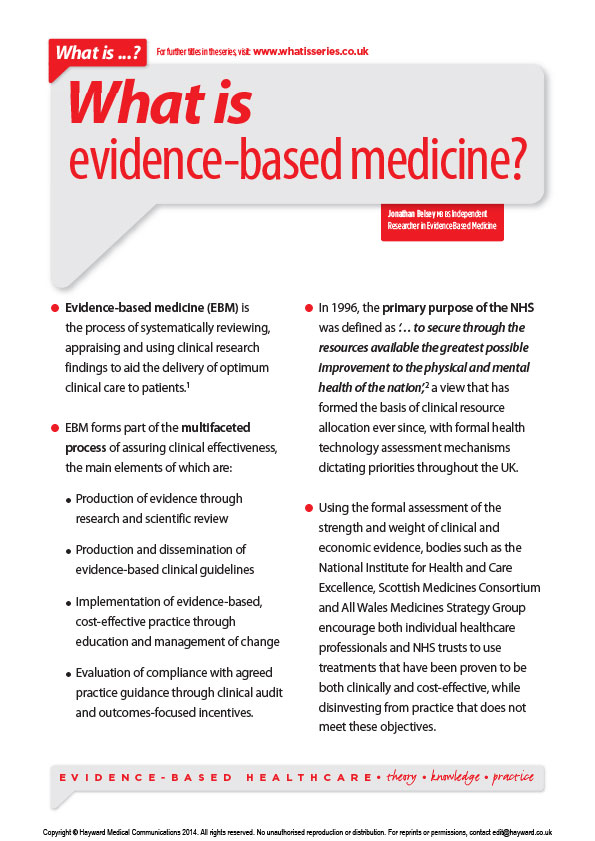What is evidence-based medicine?
£4.00 excluding VAT
Author: Jonathan Belsey
Evidence-based medicine (EBM) is the process of systematically reviewing, appraising and using clinical research findings to aid the delivery of optimum clinical care to patients.
EBM forms part of the multifaceted process of assuring clinical effectiveness, the main elements of which are:
– Production of evidence through research and scientific review
– Production and dissemination of evidence-based clinical guidelines
– Implementation of evidence-based, cost-effective practice through education and management of change
Evaluation of compliance with agreed practice guidance through clinical audit and outcomes-focused incentives.
In 1996, the primary purpose of the NHS was defined as ‘… to secure through the resources available the greatest possible improvement to the physical and mental health of the nation’, a view that has formed the basis of clinical resource allocation ever since, with formal health technology assessment mechanisms dictating priorities throughout the UK.
Using the formal assessment of the strength and weight of clinical and economic evidence, bodies such as the National Institute for Health and Care Excellence, Scottish Medicines Consortium and All Wales Medicines Strategy Group encourage both individual healthcare professionals and NHS trusts to use treatments that have been proven to be both clinically and cost-effective, while disinvesting from practice that does not meet these objectives.
